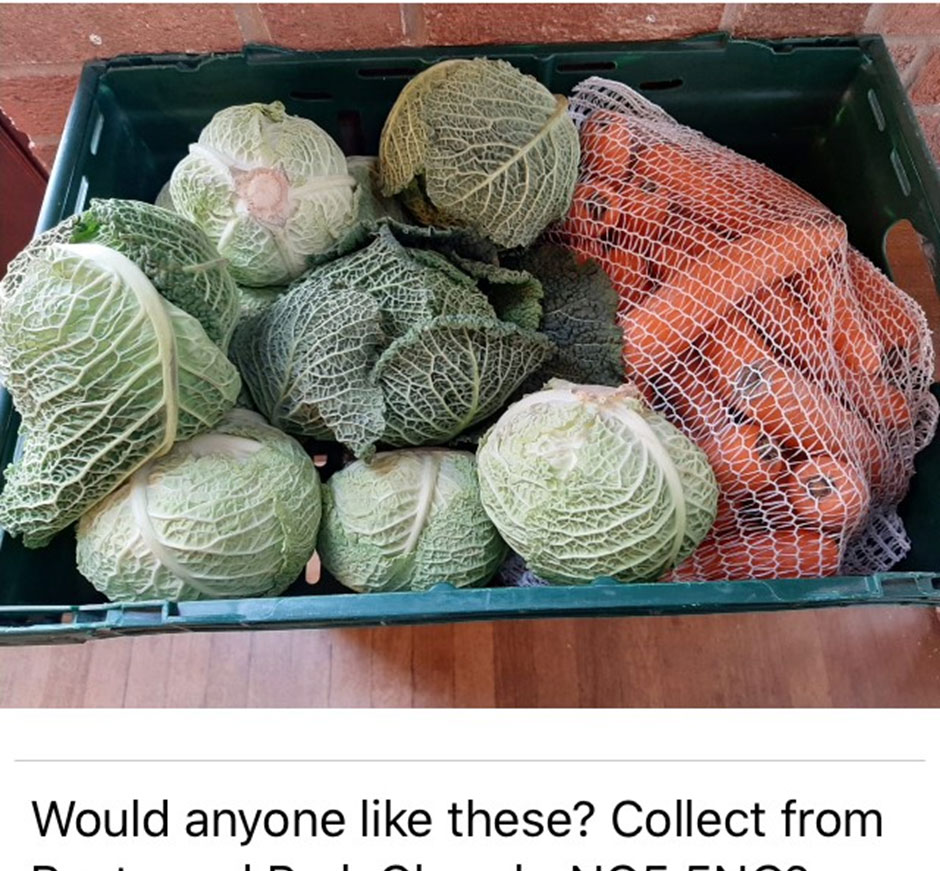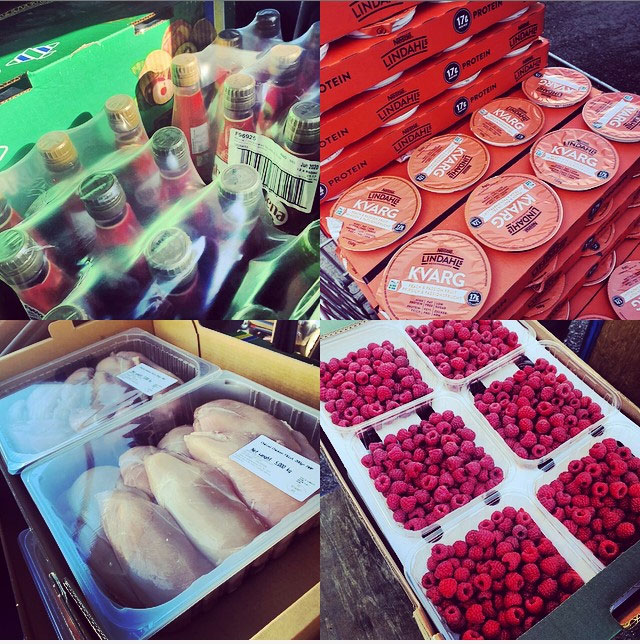By Marsha Smith, CBiS PhD Candidate
During the early stages of lockdown the Nottingham Social Eating Network and its community food partners in the City mobilised to meet the rising demand for food aid support. In this blog I reflect on how the values integral to ‘social eating’ initiatives have enabled them to respond to this challenge.
Social eating
In Nottingham there are around 15 identified social eating initiatives that are operating across most of the wards of the city. These are public meal services which in pre-COVID-19 times provided affordable, home cooked, nutritious meals at public mealtimes, often using foodstuffs from the surplus redistribution charity; FareShare Midlands. These spaces are part of a ‘more than food’ movement that recognises that eating together is hugely beneficial- nutritionally and socially and which seeks to normalise ‘social eating’ along with other networks across the region.
My PhD research explores the various practices that make up social eating, with a focus on how they are valued by participants. The practices can summarised as group eating (Chou et al. 2015), helping out at mealtimes (Pfeiffer et al. 2015) and socialising (Van Esterik 1995). Social eating spaces provide multiple points of engagement where, instead of passively consuming a ready meal, people can get involved- in the collection and sorting of surplus foodstuffs, setting up the dining room, or by engaging in conversations in the dinner-queue. Before, during and after the eating event, people are able to derive value from the various participatory opportunities that make up a social eating initiative.
This ‘more than food’ (Baron et al. 2018; Blake 2019) approach makes these initiatives particularly vital in the UK where we have food insecurity coexisting with food wastage and social isolation.
Nottingham
The lockdown may have seemed disastrous for the Nottingham Social Eating Network. With paying customers now quarantined at home, and with the capacity to engage in public eating now curtailed, how did these initiatives respond? Did social eating become obsolete?
Alongside my academic research I am voluntarily coordinating two WhatsApp groups and observing, in real-time, the reorganisation of social eating services. I view these threads as sites of dynamic communication where the broader challenges of feeding citizens during CV19 are translated at a localised level.
Instead of shutting down, the network redesigned their services and mobilised rapidly and effectively to produce and distribute thousands of meals across Nottingham. The values that participants identify as valuable in social eating could still be detected as groups sustained their meal services despite the operational challenges. In fact, instead of becoming obsolete, the network transformed into a crucial feature of Nottingham’s CV19 foodscape.
Eating together, apart
As the government left the market to balance need and demand (The BBC 2020), many people experienced food insecurity for the first time in the city. Shielding and unable to shop, with home delivery slots limited and oversubscribed, plus new redundancies and benefit-application backlogs, a referral line manned by Nottingham City Council saw numbers of requests for food aid rising. In response, surplus food resources were redirected and shared across the city.

Eating together took a new form; meals were boxed and bagged up for collection and delivery by low-risk volunteers in kitchens where the usual food hygiene rules were intensified to encompass new CV19 risks. Meals may not be being eaten at the same table, but food resources are being shared out by groups to both existing and new customers. Although not physically in the same place, the eating together ethos of the Nottingham network was sustained.
Helping out in new ways

So, too, we can identify how practices of helping out were translated into new activities around food collection, production and distribution. The expansion of food aid requests and referrals joined up existing social networks of volunteers and customers with new partners to procure, process and provide meals. Multiple and diverse actors across the city converged to both receive and to contribute help. 800 boxes of fruit dumplings, 15,000 short-dated sandwiches, pallets of yoghurt, catering packs of grated cheese and van loads of bacon were distributed across the city. Taxi drivers became meal delivery services, carparks became socially-distanced food drop off spots as the network and its partners joined forces to create novel forms of localised helping out practices.
Socialising during lockdown?
Perhaps the most striking practices that became co-opted into the pandemic responses by the Nottingham Social Eating Network concerned socialising. If we see socialising not just as a form of friendly relating but as a way of showing care and nurturance, we can understand how the network forms part of a ‘more than food’ movement. Social relationships, despite social distancing are vital. Not only are the groups producing and distributing thousands of meals, but members are the human interface between vulnerable people and the food services that are sustaining them. Door-knocking and waiting for a brief catch up chat, checking up on customers with phone calls, thanking and being thanked, putting extra food items in customers bags, paying meals forward and sharing spare food containers- are all examples of the myriad forms of socialising that the network and their partners have engaged in across the city.
Conclusion
The interruptions in the ‘just-in-time’, complex and internationally distributed food supply created temporary, localised scarcity in Nottingham. However, these initiatives embraced social disruptions, invoked new partnerships and provisioning practices; operating as a bridging mechanism between broader and localised food security practices. Nottingham citizens are being fed and cared for not solely by globalised food chains but through practices underpinned by social values that cannot be commodified. The values of sharing, care and mutuality are just as effective a means of protecting people from food insecurity than access to a commercial product or service, alone.
Insights into the adaptability and relevance of local community food services are crucial. In the coming months and years, as a recession hits and climate changes demand we develop new ways of eating sustainably, social eating initiatives show us how national crises are responded to, and how local solutions are enacted.
References:
Baron, S., Patterson, A., Maull, R. and Warnaby, G., (2018). Feed people first: A service ecosystem perspective on innovative food waste reduction. Journal of Service Research, 21(1), pp.135-150.
Blake, M., (2019a). More than just Food: Everyday food insecurity and resilient place making through community self- organising. Sustainability. 11(10), pp.2942.
Luca, N., Smith, M., Hibbert, S., Doherty, B. (2019) House of Lords Select Committee Submission for ‘Food, Poverty and the Environment- ‘How to make a healthy, sustainable diet accessible and affordable for everyone?’, Written evidence (FPO0032). Available at: http://data.parliament.uk/writtenevidence/committeeevidence.svc/evidencedocument/food-poverty-health-and-environment-committee/food-poverty-health-and-the-environment/written/105296.html on 24.4.20. [Accessed on 24.4.20]
Nottingham City Council website. Request a food parcel (2020). Available at: https://www.nottinghamcity.gov.uk/coronavirus-covid-19/request-a-food-parcel [Accessed 21.5.20).
Pfeiffer, S., Ritter, T., Oestreicher, E. (2015) ‘Food Insecurity in German households: Qualitative and Quantitative Data on Coping, Poverty Consumerism and Alimentary Participation’. Social Policy and Society, 14(3), pp.483-495.
The BBC online (2020). Coronavirus leads to food industry crisis in Europe. Available at: https://www.bbc.co.uk/news/av/world-europe-52715288/coronavirus-leads-to-food-industry-crisis-in-europe [Accessed on 18.5.20].
Van Esterik, P. (1995). ‘Care, Caregiving, and Caregivers’. Food and Nutrition Bulletin, 16(4), pp. 1–11.
By Marsha Smith, PhD Candidate at CBiS
Thesis: Applying Social Marketing to Promote Social Eating in Local Communities Through Integrating Insight on Social Eating Practices




Comments are disabled